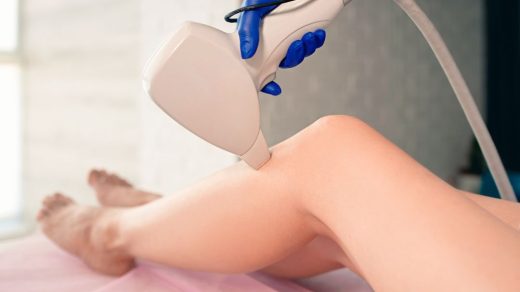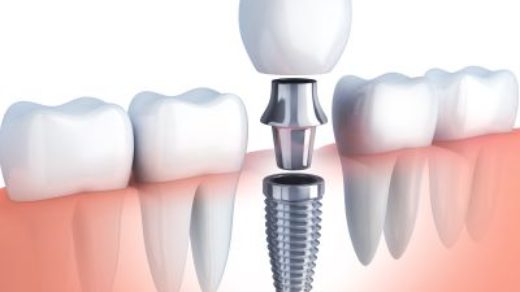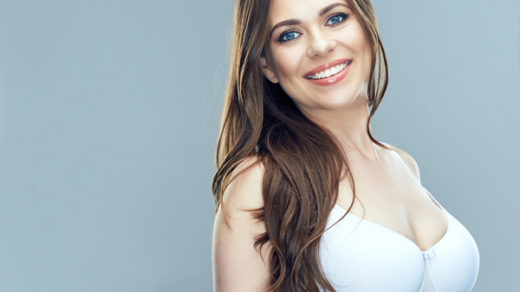The story is even more tragic when you break things down by race and ethnicity. The NCHS report found that the maternal mortality rate for Black women in 2020 was 55.3 deaths per 100,000 births, nearly three times the rate of white women—and that rates were climbing for Black and Hispanic women. And now with the overturn of Roe v. Wade, experts predict that these rates will only worsen.
There are a lot of proposed solutions to help mitigate this crisis of largely preventable deaths. One of the most promising? Doulas—trained birth workers who provide physical and emotional support to clients throughout pregnancy, labor, and the early postpartum period. Research has shown that moms with doulas were significantly less likely to have birth complications or low birth weight babies, and more likely to breastfeed. Other studies link doulas with a reduced risk of postpartum depression or anxiety.
To help expand access to doulas to Black women—the community most at risk of pregnancy complications and fatalities—skin-care giant BabyDove launched the Black Birth Equity Fund in 2021. The program provides grants to pregnant Black people to cover the cost of a doula. To date, the fund has provided grants to nearly 200 expectant moms.
Now, just over a year after the beginning of the fund, BabyDove is announcing that it’s doubling its investment to provide a total of $500,000 in grants. In a press release, the company says that this will allow it to support 200 more moms with doula grants.
In addition, the brand is partnering with Chanel Porchia-Albert, founder of Ancient Song Doula Services in New York City, to create a series of educational content for moms. The series, called “Dear Doula,” will cover common questions about pregnancy, childbirth, and postpartum care, with answers straight from doulas.
Well+Good spoke with Porchia-Albert in honor of the collaboration to talk about the role of doulas in a birthing person’s care, how her work has changed post-Roe, and more.
Well+Good: How would you describe your work as a doula? What is your focus or particular mission?
Chanel Porchia-Albert: My particular focus is to center hope. I think that within the conversation of maternal health, I really want to center a framework that uplifts informed consent, bodily autonomy, the basic human rights of individuals who birth in a safe and respectful way [and for them] to have access and resources to adequate facilities and services in a way that that will really center them and their families.
“Oftentimes that message [of hope] gets lost, because there’s so much focus on Black women dying… that we forget about the fact that these are also human beings who are having a human experience”— Chanel Porchia-Albert, doula and founder of Ancient Song Doula Services
Oftentimes that message [of hope] gets lost, because there’s so much focus on Black women dying… that we forget about the fact that these are also human beings who are having a human experience. So my work, through the different modalities of using legislative policies, community organizing, [and] by doing this work and working with BabyDove, is to really bring forth a framework where I want people to know that there is hope still, and that there are individuals and communities and organizations that are actively working to center that.
Being a Black birthing person and as a Black mother myself, raising Black children, we oftentimes find ourselves in places where you are concerned about your child’s well-being because of the impact that we have seen of racism and discrimination. Having initiatives that are really looking towards centering hope and getting people something to look toward and active resources to actually utilize is something I’m all for.
W+G: We’re already seeing how the fall of Roe vs. Wade is affecting prenatal care for people in states with strict abortion bans or regulations—and for many people, those effects had already been in place beforehand. How has this political climate affected how you approach your work, or the work itself?
CPA: Honestly, Roe was the bare minimum. Especially working within Black maternal health and reproductive health [spaces] and understanding that a lot of the places where abortion was already restricted, they also have poor access to maternal health care resources. You’ll find people who are in a space where you [the government] want them to have more children, but you’re also not providing the resources that are necessary to have an adequate pregnancy.
For us, it’s really about creating a safe space. If people have to cross state lines, having access to transportation, if [they] have other children, having access to childcare. It’s also working with [abortion] providers to make sure that they feel safe as well…
“For us, it’s really about creating a safe space. If people have to cross state lines, having access to transportation, if [they] have other children, having access to childcare”— Chanel Porchia-Albert, doula and founder of Ancient Song Doula Services
W+G: Doulas have been linked to better outcomes for expectant moms and babies, like a decreased risk of birth complications and low birthweight. What do you think needs to be done to help increase access to doulas for those who need their support most?
CPA:At the community level, the patient needs to be able to feel like they have the necessary funds to be able to access the doula, and that they have enough doulas to be able to cover the services.
On the doula services side, as someone who runs an organization, what we need is sustainability. We need the funding to be able to provide the services, educational resources, classes, and workshops, and to really build up the infrastructure to have enough doulas to be able to meet the demand. We need more doulas, but we also want to be able to have them in a way where the doulas are able to create a livelihood for themselves, and the organizations are able to sustain themselves and to meet the needs of the community. It’s a double-pronged approach where people have access to the services and they can get them, but also the organizations have the necessary support in place to be able to offer that level of sustainability within a community to provide those services.
What I really like about BabyDove and the Black Birth Equity Fund is that they are providing the resources and grants so that individuals can get a doula. They have a directory folks can tap into and find doula services in their local area. And then they can apply for a grant to be able to cover doula services. Oftentimes cost is a barrier [to having a doula]. Now, that barrier is being removed.
W+G: On that note, can you talk a little bit about the “Dear Doula” series you’re doing with BabyDove, and why you chose to partner with the company?
As doulas, I would like to hope that my voice is being heard. But I also know that BabyDove has a greater reach. It has a [consumer] base that is large, and it gives… this greater platform for folks to be able to hear information, get information, ask questions, talk to a doula, and really try to find a way to be able to engage at a broader spectrum.
W+G: What is the one thing you wish people understood about doulas?
CPA: [I want people] to understand that you deserve to be centered, you deserve to be treated with love and respect and dignity. You deserve to have your parenting affirmed. You deserve to have community support. You deserve to be pampered. You deserve to be nourished.
Oftentimes, people will look at doulas and say, “I can’t afford that.” Or, “that’s not for me.” No. A doula is for anybody. At Ancient Song, that’s one of the things we strive for. We never turn anyone away, and there’s a doula for someone. Because you deserve it. Everyone deserves it. Cost shouldn’t be a barrier. Resources shouldn’t be a barrier to being able to be cared for and loved on.
W+G: Absolutely. Doulas are such a great example of what community care can look like. I recently saw, for example, a doula’s video where she just went to a client’s house and took care of a newborn baby overnight so the mom could rest. I thought that was the most beautiful, simple thing. And I don’t think people think of doulas in that way.
CPA:[People] think that we’re all about aromatherapy and massage balls, and that’s part of it. But the other part is just basic stuff, like, “Let me watch the baby this morning.” Or, “Let me wash the baby clothes and fold them up.” Or, “Let me give you a resource for a pelvic floor therapist.”
We’re offering not just mental support, we’re also there to affirm you as parents so you can take care of your child. A lot of the emphasis [postpartum] is on the baby. …We forget about the whole human being who’s having an emotional, physical, and often spiritual experience. If they’re not centered or they don’t feel like they’re in a state to do certain things [for themselves], how can they do that for their child? Making sure that person is taken care of, making sure that they have the things that they need will only make them a better parent.
This interview was edited and condensed for clarity.


